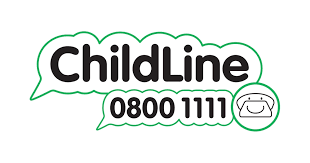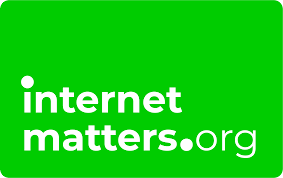Online Safety
What is Online Safety?
Online Safety is about staying safe whilst accessing various devices which usually include the internet, including social networking sites, online game sites, using game consoles that allow access to chat facilities and mobile technology such as mobile phones and tablet devices. Online safety includes avoiding viruses, identifying accurate information and not giving personal information to untrustworthy sources.
Why is Online Safety important?
Online safety is important because it safeguards the concerns of children and young people. It also emphasises the importance and use of new technologies in a positive way and encourages young people to develop safer online behaviours.
What can I do as a parent to keep my child safe?
Keep your computer, laptop or tablet in the family room so that you can monitor what your child is accessing.
Only allow your child to become members of games or sites that are monitored or moderated (a monitored site should identify risks or inappropriate content.)
Check through the browsing history of your internet search engine.
Ask your child what they are playing and who they might be talking to.
Do not sign your child up to social networking sites such as Facebook. There are age restrictions in place many of which start at 13. Regularly check your child's mobile phone, ensuring that they are only talking to close friends or family.
Remind your child to never give out any personal information such as; full name, date of birth, address or telephone number.
Set up parental controls through your internet service provider. Follow the link below, Investigate child restrictions on your home internet or computer to filter inappropriate sites and content.
What we do at school to keep your child safe?
In school, all internet access is filtered. We also use software (Securus) that monitors the children's use of the internet which logs all activity and monitors the Chromebooks when used off site. Children are also taught how to make educated judgements regarding the information that they access on the internet and how to stay safe.
At Nansen, we use Project Evolve to help deliver in depth online safety sessions. Project Evolve is broken down into 8 strands:
- - Self-Image and Identity
- - Online Relationships
- - Online Reputation
- - Online Bullying
- - Managing Online Information
- - Health, Well-Being and Lifestyle
- - Privacy and Security
- - Copyright and Ownership
We have linked these strands across the curriculum to ensure children are being continually being taught about online safety.
Teacher and staff responsibilities
The safe and effective supervision of pupils using the internet in school via a variety of devices is the main concern for teachers with regard to the online environment.
Due to many children using the internet at home for homework, playing games and socialising, it is critical that safe internet use at school is mirrored by safe internet use at home.
It is important that schools respond positively and work with parents in educating children about the positive ways in which the internet can be used but also point out some of the associated risks. This can be done in numerous ways, such as e-safety days, parent workshops and regular reminders on news letters.
We like to encourage parents to play a part in their child's internet safety, increasingly now as applications are emerging rapidly including social networking, Peer to Peer networks, mobiles and wireless applications.
Even though internet access in schools is filtered thoroughly, supervised and safe, many teachers face particular challenges in educating pupils how to use the internet safely outside of the classroom.
Online safety advice and how to report abuse
CEOP (Child Exploitation and Online Protection)
CEOP help children stay safe online. You can contact CEOP if someone has acted inappropriately towards you online, or to a child or young person you know. It may be inappropriate chat, being asked to do something that makes you feel uncomfortable, or someone being insistent on meeting up. 
You can report it by clicking on their logo here:
Childline
ChildLine is a private and confidential service for children and young people up to t he age of nineteen. You can contact a ChildLine counsellor about anything.
he age of nineteen. You can contact a ChildLine counsellor about anything.
You can contact Childline by calling 0800 1111 or visit their website by clicking on their logo here:
Internet Matters
Keeping your children safe online matters. "Internet Matters" is an independent, not-for-profit organisation which aims to help parents keep their children safe online. We believe in m aximising children’s potential online, while staying safe, and Internet Matters can help parents to address this important issue.
aximising children’s potential online, while staying safe, and Internet Matters can help parents to address this important issue.
Visit their website by clicking on their logo here:
Guidance, Information and Resources
-
Digiduck ebook
download_for_offline
download_for_offlineDigiduck ebook
- Facebook Checklist download_for_offline
download_for_offlineFacebook Checklist
- Facebook Privacy Controls download_for_offline
download_for_offlineFacebook Privacy Controls
- Google Safe Search download_for_offline
download_for_offlineGoogle Safe Search
- Iphone Safety download_for_offline
download_for_offlineIphone Safety
- Netflix Parental Controls download_for_offline
download_for_offlineNetflix Parental Controls
- Netflix Parental Guidance download_for_offline
download_for_offlineNetflix Parental Guidance
- Online Gaming download_for_offline
download_for_offlineOnline Gaming
- The Adventures of Smartie the Penguin download_for_offline
download_for_offlineThe Adventures of Smartie the Penguin
- What parents need to know about Discord download_for_offline
download_for_offlineWhat parents need to know about Discord
- Youtube safety mode download_for_offline
download_for_offlineYoutube safety mode
Parental Responsibilities, Information and Resources
gov.uk - keeping children safe online
↑ - Facebook Checklist download_for_offline



